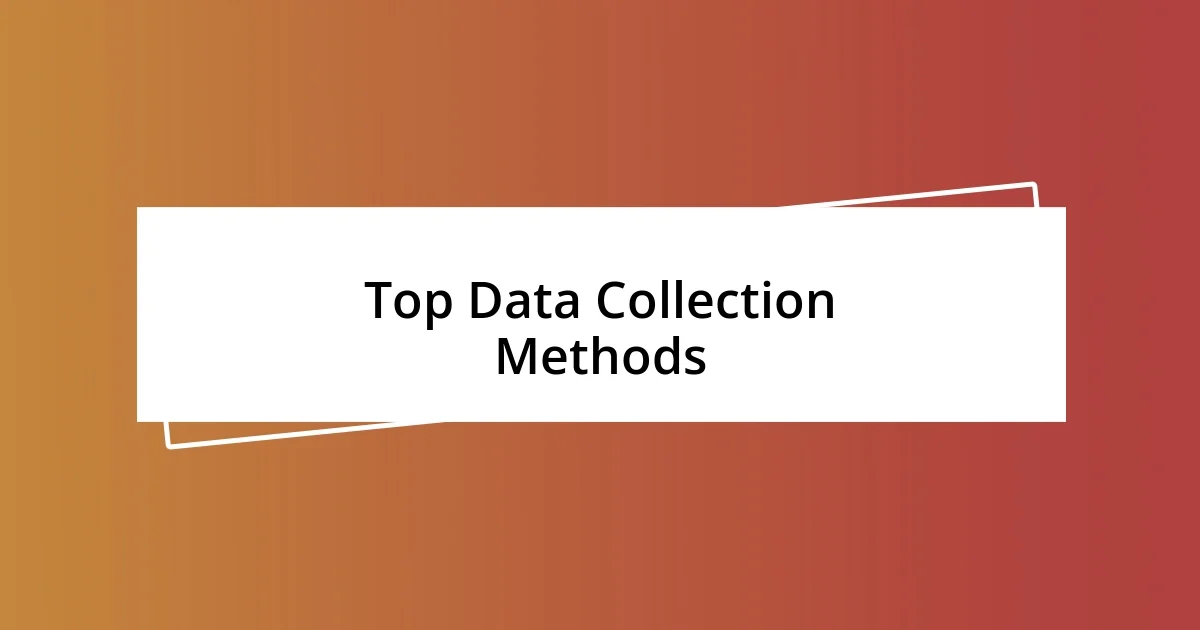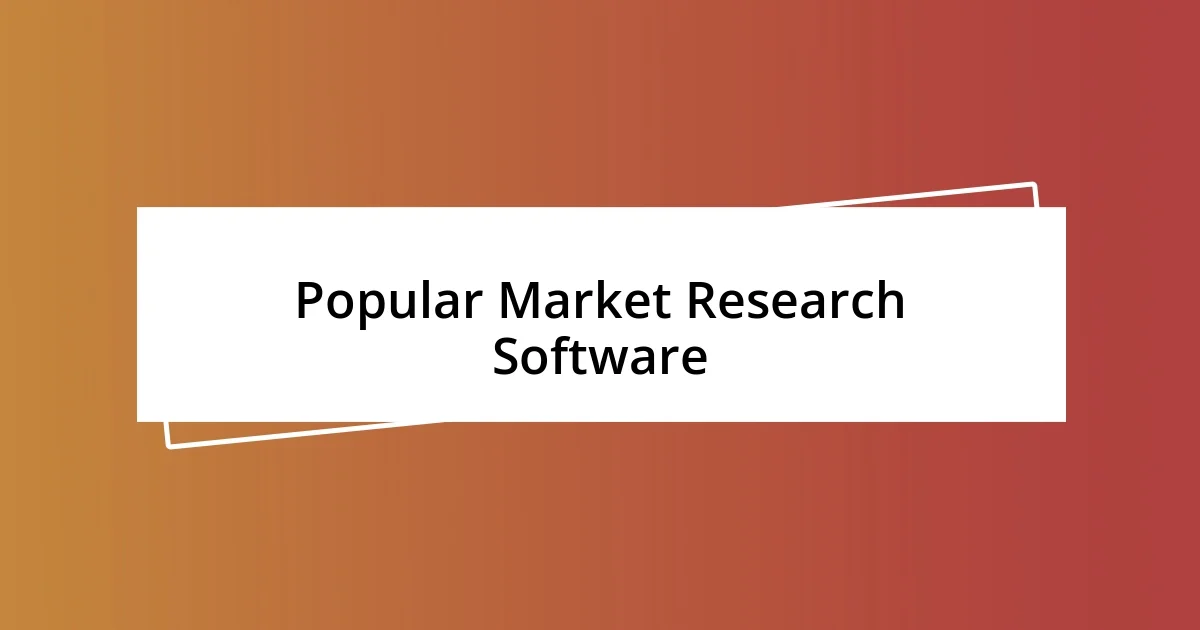Key takeaways:
- Market research tools, such as surveys and analytics platforms, are vital for understanding consumer behavior and informing strategic decisions.
- Effective market research reduces risks, strengthens customer relationships, drives innovation, and enhances a company’s competitive edge.
- Popular market research software like SurveyMonkey, Qualtrics, Google Analytics, and social listening tools provide valuable insights and improve engagement with target audiences.

Introduction to Market Research Tools
Market research tools are essential in understanding consumer behavior and market trends. They provide insights that can drive strategic decisions, helping businesses stay ahead of the competition. When I started my journey in market research, I often felt overwhelmed by the sheer volume of data available. How do you know which tools truly deliver value?
Discovering tools like surveys and analytics platforms was eye-opening for me. I remember using a simple survey tool for the first time, gathering feedback on a product I was passionate about. The immediate responses I received not only informed my decisions but also made me realize how empowering it is to connect directly with the audience. Isn’t it fascinating how understanding people’s needs can shift the trajectory of a business?
As you dive into this world of market research, it’s important to recognize that the right tools can transform data into actionable insights. They help decode complex consumer emotions and preferences, allowing for well-informed strategies. Think about a time when a well-researched decision made all the difference in your life—didn’t that feel incredibly rewarding? That’s the power of effective market research tools.

Importance of Effective Market Research
Effective market research is not just a checkbox on a business plan; it’s a crucial foundation for making informed decisions that steer a company toward success. I recall a project where we misjudged consumer preferences and launched a product that flopped. It was a hard lesson in the importance of truly understanding the audience. Realizing that market research is about digging deeper than surface-level trends was pivotal for me.
Here are a few reasons why effective market research matters:
- Informs Strategic Decisions: Good research provides clarity on market needs and gaps.
- Reduces Risks: It helps identify potential pitfalls before launching a new product.
- Strengthens Customer Relationships: Engaging with customers through research builds trust and loyalty.
- Drives Innovation: Insights gleaned from research can inspire new product ideas and improvements.
- Enhances Competitive Edge: Understanding competitors through research can reveal opportunities for differentiation.
With effective tools, you not only gather data but truly connect with the heartbeat of your target market. That connection can make the difference between success and failure.

Top Data Collection Methods
Surveys are one of my go-to methods for data collection. They allow for direct engagement with the target audience and can be tailored to extract specific information. I clearly remember sending out a survey to a group of potential users before launching a new service. The feedback was invaluable and helped refine our offering to better meet their needs.
When it comes to gathering data, focus groups can be incredibly revealing. I once moderated a session that brought together a diverse group of participants. Their discussions highlighted aspects of our product that I hadn’t considered. This firsthand interaction provided a depth of understanding that surveys alone couldn’t have achieved.
Secondary research is another essential data collection method. I often delve into existing reports and studies to uncover trends and statistics that can enhance my primary research. This approach not only saves time but also allows me to build upon established knowledge, creating a more comprehensive view of the market landscape.
| Data Collection Method | Strengths |
|---|---|
| Surveys | Direct feedback, customizable questions, and quantifiable results. |
| Focus Groups | In-depth insights, group dynamics reveal new perspectives. |
| Secondary Research | Time-efficient, cost-effective, builds on existing knowledge. |

Popular Market Research Software
When it comes to popular market research software, a few names consistently stand out to me. Tools like SurveyMonkey and Qualtrics have transformed how we approach surveys, offering user-friendly interfaces that make it easy to design and distribute questionnaires. I remember the first time I tried Qualtrics; it felt like having a powerful analytics engine at my fingertips, allowing me to gather rich insights without any complicated coding.
Another platform worth mentioning is Google Analytics, which goes beyond the basics to provide a wealth of data about online behaviors. It’s fascinating how this tool can track user interactions on a website, helping me understand where potential customers are dropping off in their journey. Have you ever analyzed your website’s traffic? It’s eye-opening! I found that small tweaks based on this data—like changing a call-to-action—boosted conversions significantly.
Lastly, I can’t overlook the value of social listening tools like Hootsuite or Brandwatch. These applications monitor what people are saying about your brand across social media platforms in real time. I once used Brandwatch to catch emerging trends related to my industry, and the insights were enlightening, leading to a campaign that resonated deeply with our audience. Isn’t it incredible how these tools can turn chatter into actionable strategies?














